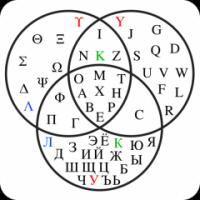Mensagens: 16
Idioma: English
jkph00 (Mostrar o perfil) 4 de março de 2013 20:55:57
Ganove:I think that he asked for a translation and not for an interpretation. I learnt in school that a translation remains the original information and structure as close as possible compared to an interpretation which is rather a freer translation just mirroring the sense.To interpret has a wide range of meanings, Ganove, but generally one interprets speech (which is perforce less exact) and translates writing.
Ganove:Please, correct me if I am wrong: 'should' also indicates an assumption that it probably gets you over the border but not with a 100% probability.Yes, and there is considerable doubt involved. Still, the speaker thinks the vehicle will make it there.
Ganove:Please, correct me if I am wrong: 'let's' is an abbreviation for 'let us' which indicates a command to 1st first plural.Just so.
Ganove:Please, correct me if I am wrong: 'Is this the life that’s left for me to live?' asks for the way how his life will be but not how his future will be.I think it's a bit more subtle than that. The question suggests dismay and consternation at right now. The character looks to the future and finds it may not have been worth the price he has paid.
Ganove:Correct me if I am wrong: Re-considering the English 'come catch me!', I think there's lacking a comma 'Come, catch me!' whichs means both, 'Come!' and 'Catch me!' are imepratives.Your inserted comma changes the stress of the sentence from a single idea to two. "Come catch me!" is about one idea: "catching me."
Alle Achtung Ihrer englischen Sprachkenntnisse wegen. You are really learning the fine points of English.
matrix (Mostrar o perfil) 5 de março de 2013 04:45:43
A: Ili venos por vi, vi scias?
B: Yeah, I suppose they will.
B: Jes, probable.
A: Well, it’s not one-hundred percent, but it should get you over the border.
A: Nu, ĝi ne tutfidindas, sed almenaŭ transiros la limon por vi.
B: Good enough.
B: Sufiĉe.
A: Alright then, let’s be quick about it. We’re already out of time.
A: Nu, ni rapidu. Tempo jam mankas.
---------
B: Is this the price I must pay for my crimes? Is this the life that’s left for me to live?
B: Ĉu estas la prezo, kiun mi pagu pro miaj krimoj? Ĉu tia vivo estas ĉio, kio restas al mi?
C: Daddy! You’re it, come catch me!
C: Paĉjo! Jen vi estas, kaptu min nun!
B: Wait!
B: Atendu!
Ganove (Mostrar o perfil) 5 de março de 2013 12:26:11
jkph00:Alle Achtung Ihrer englischen Sprachkenntnisse wegen. You are really learning the fine points of English.Thank you!
I really like English. That's why I learnt and still learn those fine points of English in order to improve my way of talking and writing.
And I want to reach such a skill in Esperanto, too.
So I keep learning and studying Esperanto and English

sudanglo (Mostrar o perfil) 5 de março de 2013 12:58:39
RiotNrrd (Mostrar o perfil) 5 de março de 2013 23:42:08
kenzieli23 (Mostrar o perfil) 15 de março de 2013 05:45:16



